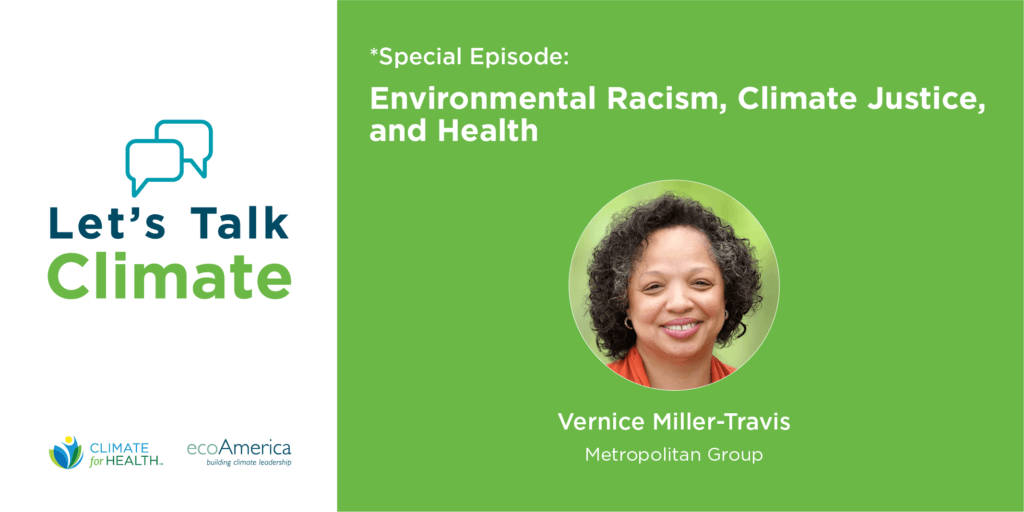Environmental Racism, Climate Justice, and Health
On June 11, I had the honor and privilege to engage in an energizing and powerful conversation about “Environmental Racism, Climate Justice, and Health” with Vernice Miller-Travis, Senior Vice President at the Metropolitan Group and environmental justice advocate. We started our conversation pondering, “Is this GroundHog Day, or a tipping point?” Dr. Arthur Evans posed this question to the American Psychological Association Town Hall on the racism pandemic, and it is truly the question we’re grappling with if we want to make real and sustained change. Thankfully, Vernice is optimistic about the moment we are in, saying, “I don’t think we have actually been here before…I can’t speak for other parts of the country, but it is hot as hell here. We are in full-on summer…and people still keep coming out.” If you need some real talk about what’s happening right now and how we can build back better, Vernice is a clear and consistent voice.


Our conversation covered a range of topics, focusing mostly on dismantling the systemic racism baked into our systems. Listen to hear more about:
- The racist history of the environmental movement, flowing through to the post-1970 modern-day environmental movement
- The NACCP-LDF’s work to study the psychological effects of segregation on African-American children through “The doll tests,” which have been recreated more recently, as well
- Preparing for heatwaves and hurricanes in the midst of a pandemic
- Syndemics – when two or more major crises target and affect a specific population
- Lifting up the work of Resilience Hubs
- Economic and public health considerations in climate change planning, and COVID-19 reopening
“Here we are in this moment and people cannot escape the reality of race and the primacy of racism in creating environmental and public health inequities.”
Vernice’s final advice to listeners, in particular, health professionals working to address health disparities through climate action: include more intentional climate communications; don’t allow people to get sucked into the battle about disinformation and find outlets for those communications that you don’t normally tap into. Stay above the fray and make sure the climate and health message is heard. Check out our Let’s Talk Health and Climate Guide for more specific guidance.